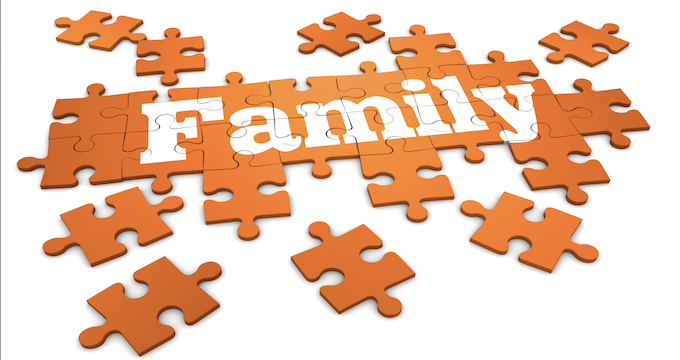The idea of celebrating Father’s Day in schools is contested.
Why? It can be hard to navigate these type of celebratory days which have a reliance on outdated family structures. The nuclear family type has now changed to more diverse family representations. This results in differing points of view depending where you fit.
From the study I conducted with school community members including teachers, students, parents and principals who had experienced a close bereavement I discovered thoughts and feelings of marginalisation within their school community. This was particularly pronounced when discussing Mothers, Father’s and Grandparent’s Day. This provoked interesting perspectives and an unearthing of discontent and uncomfortableness for students, parents, teachers and principals alike.
In a democratic inclusive community all voices of people in our school communities need to be heard but on days like Father’s day, media and the status quo dominate . . . let’s consider which people in our school communities may feel challenged by or uncomfortable on Father’s Day celebrations at school.
Read Carla J Kennedy’s personal reflection
A story of discontent
Opinions from parents from education and health backgrounds tell the story of discontent by suggesting how these celebratory days can change and what considerations need to be made. Principals are in a difficult space, trying to meet the needs of all different types of family. However, the often marginalised voices of bereaved individuals in school communities go unheard and need to be highlighted when thinking about these celebratory days.
Lorenzo, a bereaved parent whose daughter died and who works as a teacher, makes comment about how as a school community we can open up to conversations about diversity
He says: The key behind it (Father’s Day) is to actually you know bring up and talk about what it is to be part of a family… not doing colouring activities that’s based upon you know a coloured in rose picture for your mother or a coloured in hammer picture for your dad. You know it’s more complicated than that. Families are different … what your family looks like, it might not be what anybody else’s family in your classroom looks like and it might be great for them to hear … you live with your granddad and your dad because you know both of their partners have passed away or you live with two mothers and because you know you’ve got gay parents.
. . . I think that those opportunities are too valuable to pass up. And it kills bigotry and it kills racism and it kills homophobia and all that stuff if you’re exposed to those things as a young person. If you’re sheltered from it and you live in a homogenous, you know sanitised world, then it’s easy to see the other as being very different. Whereas, if it’s in your face and it’s there, then it’s really hard to foster those opinions that aren’t very helpful.
Renaming these days
Differently, Jonathon as a health worker and bereaved spouse, considers his children on Mother’s Day and promotes the idea of renaming these days instead.
He says: I think the challenge around Mother’s and Father’s Day and things like that when you’ve had a parent that’s died or a parent that you don’t have, is a big challenge for schools around how they manage that. I think the challenge with Mother’s Day or generally is that it’s heavily promoted. My kids always get tetchy around that time and we have discussions about it … for schools it’s much better to say … you know ‘Carers Day’ or to kind of work in a way that says ‘how to celebrate the people that care for us’ would be a much better framework …
Sensitivities for families
Jane, as a lead teacher and a person who has lost both her parents, makes comment about sensitivities for families around this time.
She says: I guess it’s about reaching out and being aware of different peoples’ situations. Even today (Father’s Day), it’s a tricky time. How we publicise that, invitations, it can so easily slip off the tongue. It’s Father’s Day or something … no, it’s just a day that we acknowledge someone special in our lives. I think it’s being mindful. It’s raising a flag and saying let’s broaden that so it’s not a reminder I’m different. Yes, it’s a reality you may have lost a parent. We know that, but it’s another stab in the heart about that person’s absence. I think we need to be very sensitive to that.
A common thread
These three statements pose very different considerations going forward. The common thread is that celebratory days are a challenging space and sensitivity is critical. Schools are encouraged to consider the perspectives of marginalised populations in their school. The following recommendations are also offered for schools wanting to take action on these issues
- Actively discuss with teachers, parents and students how the diverse range of family structures are acknowledged on celebratory days
- Consider the relevance of these days in a changing culture
- Listen attentively to the advice and opinions of marginalised voices in your school community. What do same-sex parents, adoptive parents, bereaved parents, sole parents and grandparents as carers think about Father’s day this year?
- Develop policy to ensure all family types are considered in decision-making.
Every year many schools actively promote and participate in Father’s, Mother’s and Grandparent’s Day activities. They rightly want to celebrate these dedicated family members. However, it is important to recognise that families do find these days sad and/or uncomfortable. If we are truly working towards an inclusive environment all voices in school communities need to be heard.

Carla J Kennedy is a lecturer/researcher in education with the School of Education/Arts/Community at Federation University, Victoria, Australia. Her research using social inquiry has focused on school communities investigating compassion, existing power and inequalities in schools.







The update on father’s day was very rewarding. I agree that some days such as mother’s day etc can be very sad for some. It is important that we remind ourselves of this each and every day. Carla was very right in her comments and she inspired me.
The Mother’s Day roses, the Father’s Day hammers, the family tree that starts every school year for the majority of students in the early years of school so often rent at the hearts of those who have endured loss, trauma, and family separation and so on. Today we live in a society that is fragmenting rapidly and the fragmentation is most keenly felt in the hearts and minds of our children and young people.
Many students, parents and caregivers struggle to respond to these traditional days that essentially celebrate the nuclear family. So many of these students are left wondering “What about me? Why don’t I fit?”. Increasingly students and their care givers are making the decision to step back from these events, they understandably withdraw to avoid the questioning by well-meaning peers or the jeers by those who take advantage of vulnerability. It is important to celebrate those who care for and raise our students, it is increasingly important to welcome carers back into school communities after COVID-19, however, it is time to do this in a more compassionate and inclusive way. Thank you Carla for sharing your insights and for provoking thought around this topic.